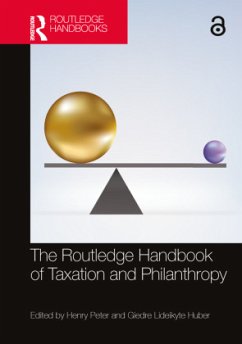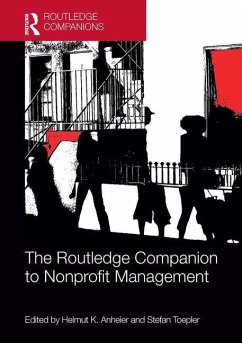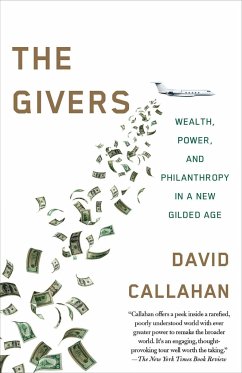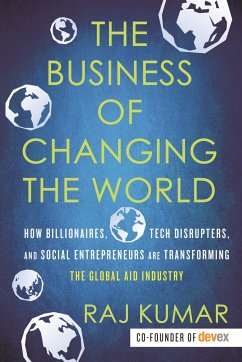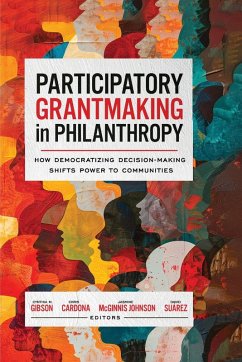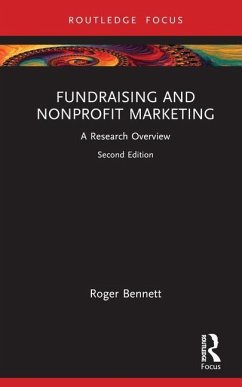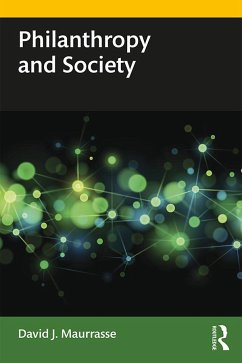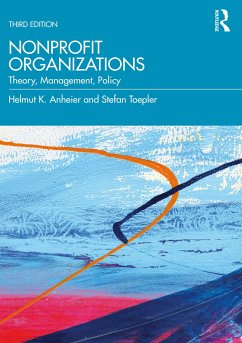
The Routledge Handbook of Artificial Intelligence and Philanthropy
Versandkostenfrei!
Versandfertig in 6-10 Tagen
230,99 €
inkl. MwSt.

PAYBACK Punkte
115 °P sammeln!
The Routledge Handbook of Artificial Intelligence and Philanthropy acts as a catalyst for the dialogue between two ecosystems with much to gain from collaboration: artificial intelligence (AI) and philanthropy. Bringing together leading academics, AI specialists, and philanthropy professionals, it offers a robust academic foundation for studying both how AI can be used and implemented within philanthropy and how philanthropy can guide the future development of AI in a responsible way.The contributors to this Handbook explore various facets of the AI philanthropy dynamic, critically assess hurd...
The Routledge Handbook of Artificial Intelligence and Philanthropy acts as a catalyst for the dialogue between two ecosystems with much to gain from collaboration: artificial intelligence (AI) and philanthropy. Bringing together leading academics, AI specialists, and philanthropy professionals, it offers a robust academic foundation for studying both how AI can be used and implemented within philanthropy and how philanthropy can guide the future development of AI in a responsible way.
The contributors to this Handbook explore various facets of the AI philanthropy dynamic, critically assess hurdles to increased AI adoption and integration in philanthropy, map the application of AI within the philanthropic sector, evaluate how philanthropy can and should promote an AI that is ethical, inclusive, and responsible, and identify the landscape of risk strategies for their limitations and/or potential mitigation. These theoretical perspectives are complemented by several case studies that offer a pragmatic perspective on diverse, successful, and effective AI philanthropy synergies.
As a result, this Handbook stands as a valuable academic reference capable of enriching the interactions of AI and philanthropy, uniting the perspectives of scholars and practitioners, thus building bridges between research and implementation, and setting the foundations for future research endeavors on this topic.
The Open Access version of this book, available at http://www.taylorfrancis.com, has been made available under a Creative Commons Attribution-Non Commercial-No Derivatives (CC-BY-NC-ND) 4.0 license.
The contributors to this Handbook explore various facets of the AI philanthropy dynamic, critically assess hurdles to increased AI adoption and integration in philanthropy, map the application of AI within the philanthropic sector, evaluate how philanthropy can and should promote an AI that is ethical, inclusive, and responsible, and identify the landscape of risk strategies for their limitations and/or potential mitigation. These theoretical perspectives are complemented by several case studies that offer a pragmatic perspective on diverse, successful, and effective AI philanthropy synergies.
As a result, this Handbook stands as a valuable academic reference capable of enriching the interactions of AI and philanthropy, uniting the perspectives of scholars and practitioners, thus building bridges between research and implementation, and setting the foundations for future research endeavors on this topic.
The Open Access version of this book, available at http://www.taylorfrancis.com, has been made available under a Creative Commons Attribution-Non Commercial-No Derivatives (CC-BY-NC-ND) 4.0 license.





